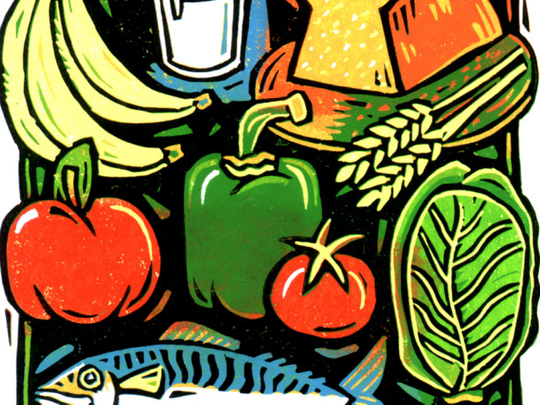
The right foods won’t cure asthma but they can improve overall health. The ubiquitous array of processed food available today means many of us unwittingly choose a diet full of inflammatory foods, but for a more efficient lung capacity it is important to make changes.
Victoria Tipper, Nutrition Coach, Dubai Herbal & Treatment Centre, says, “The increase in asthma prevalence may be influenced by the increase in pro-inflammatory foods often consumed nowadays. Such foods increase overall systemic inflammation and reduce lung function. Processed, industrial vegetable oils including corn oil, soybean oil, safflower oil, sunflower oil and cottonseed oil are high in the pro-inflammatory omega-6 fatty acids and asthma sufferers should throw them out. Another pro-inflammatory food is sugar. Cutting out sweets, cakes and sodas will really help.”
Certain food intolerances can also trigger attacks. “Gluten is something that many are unknowingly intolerant or allergic to,” says Tipper.
“If such a person consumes anything containing this protein, an immune response is initiated which increases inflammation in the body, worsening a condition like asthma. It is wise to identify any food sensitivities or allergies and cut them out of the diet.”
Dr Yin Rundell, Specialist Internal Medicine, Dubai Physiotherapy & Family Medicine Clinic, says that peanuts, nuts, eggs, cows milk, soy, fish and shellfish can also trigger asthma is some people. “It is also clear that sulphites, which are found in foods such as pickles and dried fruit, can trigger asthma in certain people, so it is wise to avoid these,” she adds.
However, what asthma sufferers shouldn’t avoid is a diet full of essential vitamins. Tipper advises, “Boost anti-inflammatory foods. Omega-3 essential fatty acids are vital in reducing overall inflammation and are best sourced from fish.”
Though for those asthmatics who suffer from a reaction to seafood, Tipper says, “There are non-fish sources of omega-3 fatty acids, such as milled flaxseeds, flaxseed oil and chia seeds. Monounsaturated fats including olive oil, avocados, almonds and hazelnuts (if no nut allergy) can also help lower inflammation, so eat daily.”
Other antioxidant-rich foods that should be boosted daily, Tipper says, include citrus fruits, artichokes, eggs, broccoli, nuts and seeds, beetroot, beans and berries. “Eat a variety of coloured vegetables and leafy greens daily,” says Tipper. And if in doubt follow Dr Rundell’s recommendations: “If your diet is relatively free of additives and E numbers, you won’t do yourself any harm.”











